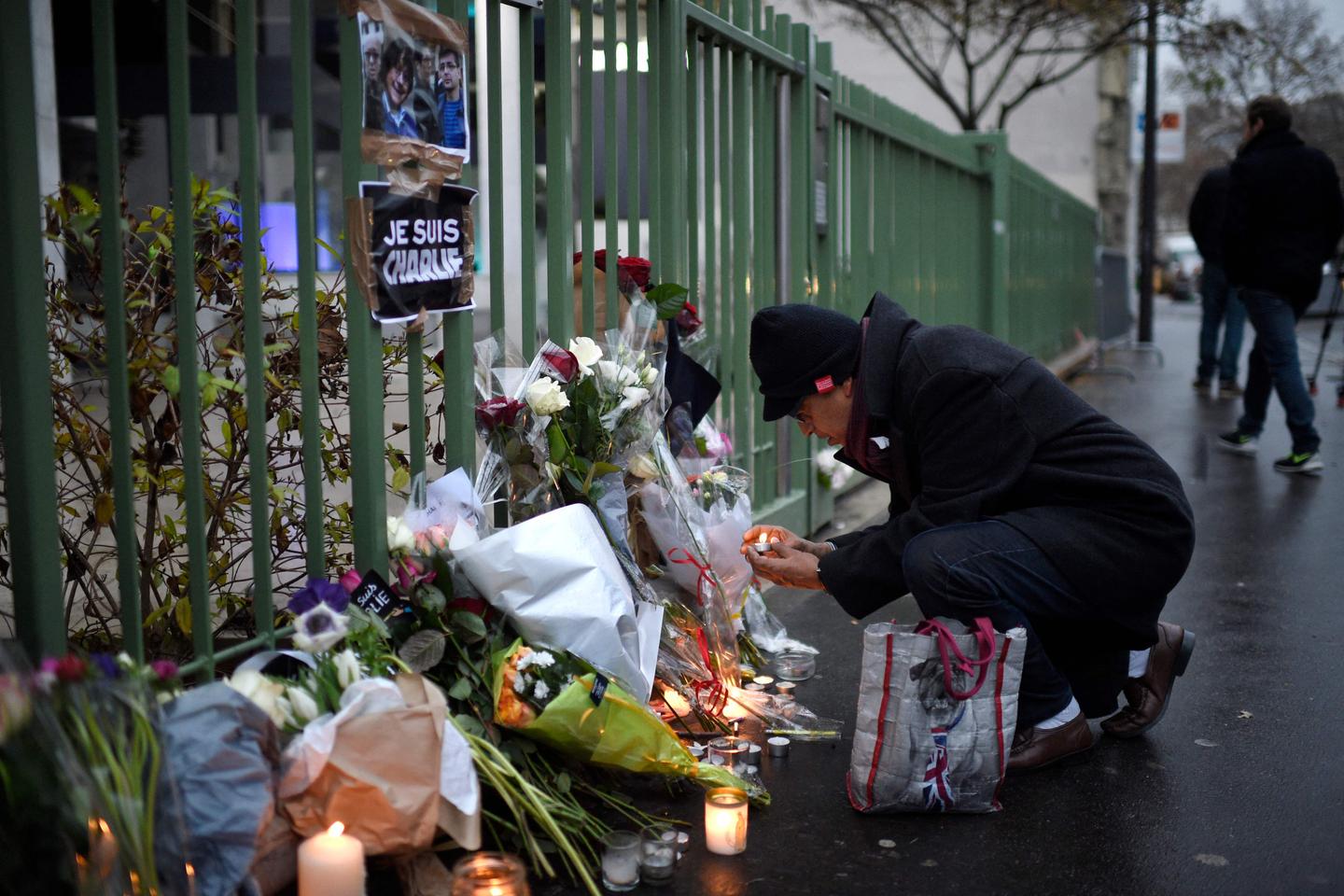


A decade has passed and France has not been the same since. The jihadist attacks of January 7, 8 and 9, 2015, in Paris and neighboring Montrouge, were a shock of comparable violence for the "country of human rights" to the events of September 11, 2001, in the United States. In France, it was not a symbol of financial power that was targeted but two priceless, fundamental cultural pillars: freedom of expression and the right of French Jews to live in peace in their own country.
During those three horrific days, three Islamist terrorists, all French citizens, intent on "avenging the prophet Mohammed," murdered 17 people with weapons of war. The rampage claimed 12 victims in the offices of the newspaper Charlie Hebdo on the morning of January 7, including eight members of the newspaper's staff, popular figures emblematic of the French tradition of satire and free criticism of all forms of thought, including religions. The following day, a municipal policewoman was shot dead near a Jewish school, which was probably her assailant's target. Then, on January 9, four customers of the Hyper Cacher kosher supermarket at Porte de Vincennes, in eastern Paris, were targeted because they were Jewish and coldly shot dead.
The devastation of January 2015 may have come as less of a surprise had a tragic signal been better heeded, after an Islamist terrorist in 2012 killed three soldiers and four Jewish people in the Toulouse area, including three children at a Jewish school. Nonetheless, according to former Paris prosecutor François Molins, the January 2015 attacks were "a turning point in the seriousness of terrorist attacks, but also in the export of jihad to Europe."
Since then, from the Bataclan concert hall in Paris to the Stade de France in Saint Denis, from Nice to Magnanville, from Saint-Etienne-du-Rouvray to Conflans-Sainte-Honorine and Arras, the country has never ceased to be confronted with "absolute barbarity" denounced by the judge presiding over the ruling on the murder of Samuel Paty, a history and geography teacher assassinated in 2020.
Daily vigilance
Exceptionally large in scale and seemingly unanimous, the demonstrations organized in response to the January 2015 attacks seem distant today. Under these multiple blows, France has resisted the temptation of exceptional laws and violence between communities. The justice system has sentenced the killers' accomplices in exemplary trials. But how can we fail to link the shock of the repeated carnage committed by radicalized French nationals with the electoral success of the far right, which has consistently conflated immigration and Islamism?
How can we not deplore that the "Je suis Charlie" movement has given way to relativism on freedom of expression and the right to blasphemy, particularly among younger generations? How can we fail to notice that these repeated tragedies and their often cynical political exploitation have only widened the gap on secularism, a historically left-wing value that the right and far right are trying to appropriate? How can we fail to be alarmed by the concerns and sense of isolation felt by French Jews in the face of the rise in anti-Semitic acts, all too often tolerated under the pretext of criticism of Israel?
Beyond the indispensable duty of remembrance towards the victims, the anniversary of the January 2015 attacks should serve as a reminder of the fragility of the universalist legacy of the Enlightenment. Neither freedom of expression – particularly that of press cartoons – nor the principle of secularism, which respects religions but imposes itself on them and enables people to live together, nor the rule of law, which subjects actions to the law, are definitive achievements. These are values that require daily vigilance and the mobilization of all.
